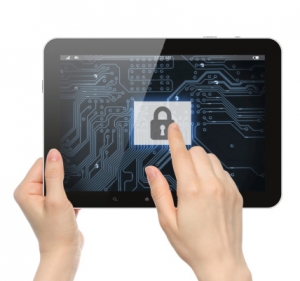 It seems like we hear about massive data breaches every week where thousands or millions of subscribers or customers’ data was hacked and stolen by hackers and other cyber “bad guys.” However, if you knew how much information about who you are, where you live, your spending habits, the places you travel, etc. is available for the taking either by hackers, or the government, you might be shocked. Here are some pre-emptive steps that you can take to diminish your digital footprint and maintain a bit more privacy online.
It seems like we hear about massive data breaches every week where thousands or millions of subscribers or customers’ data was hacked and stolen by hackers and other cyber “bad guys.” However, if you knew how much information about who you are, where you live, your spending habits, the places you travel, etc. is available for the taking either by hackers, or the government, you might be shocked. Here are some pre-emptive steps that you can take to diminish your digital footprint and maintain a bit more privacy online.
- Google yourself occasionally
While Google Alerts are no longer as reliable, there are a few, free alternative solutions that you can use to track your name, or any keyword you would like to receive alerts about. They take just a few seconds to setup, and you can get notifications daily or weekly when your name, your company’s name or any other keyword is mentioned online. Talkwalker Alerts is a free and simple to use solution for tracking online mentions.
- Self-censor your searches
A lot can be discovered about a person by reviewing their search history. When you are on your computer or cell phone and logged in to an account, remember to think about what you are typing in, and consider whether or not you would want everyone you know to know that you were searching n that term. Also consider if someone were investigating you, what impression might that search term give about the kind of person you want to be known as? Even when your browser is in “stealth mode,” there is no guarantee that your search queries are private.
- Avoid unknown public wifi networks
Using your devices on a public wifi network can expose you to hackers who set up a wifi hot spot with a common sounding name, such as “Public WiFi,” to lure those close by into signing on. Once visitors sign on, the hacker can hijack your session, steal your username and passwords giving them full access to any online service you have logged into while on their fake wifi network.
To protect yourself on public wifi, make sure you know whose network you are signing in on. If you are at a cafe, find out what their official wifi network name is. While on public wifi networks, be sure to use an encrypted session, using HTTPS in the browser address bar. You can also protect yourself by using a VPN service, which encrypts the data you send and receive. Make sure that your device is not configured to share access to files on public or guest networks.
- Make sure that your devices are password protected
Many people do not password protect their phone or tablet or other connected devices because they do not want to deal with the hassle of entering a password every time they want to use the device. However, if your device is not password protected, and then it is lost or gets stolen, your accounts can be accessed by whoever has that device. According to cyber-security company McAfee, 36 percent of Americans do not password protect their mobile phones, which leaves all of their personal data and access to their accounts unlocked and unprotected. Another surprising data point is that about 30 percent of Americans save their password information in the notes app on their phone.
If you use email, log into your online banking account or access any medical services apps using your phone, put a password on it, and never keep a list of your passwords on your phone.
- Did you really delete that?
When it comes to online services and social media profiles, “delete” does not mean that is has gone away. Your search history on Google, Facebook, Twitter, and many other online services or platforms is preserved and can be accessed later in the event of an investigation or it can be discoverable in a civil or criminal lawsuit. What’s even worse is that Facebook even saves the data that you started typing in to a status update, but then deleted without posting. When it comes to social media, deleting does not mean that an item has been deleted. It may have been pulled from view, but it still remains and it is still tied to your profile.
If you are involved in a civil or criminal lawsuit, deleting posts can be considered to be “spoliation of evidence” and you can face civil or criminal penalties. You can easily delete your Facebook search history.
Some of these tips offer low-tech solutions and some are a bit more high-tech, but all will help make it that much more difficult for hackers, advertisers and other cyber-stalkers to invade your privacy.







Leave A Comment